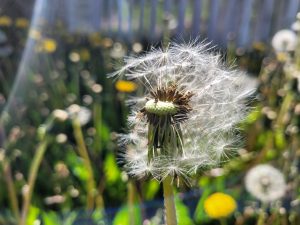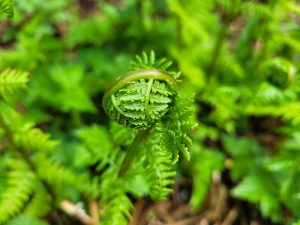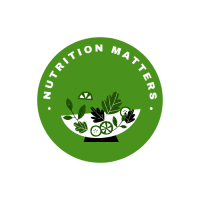Do you believe there are better ways (than others) to age? I do.
What they say about aging may not be true
 You may have heard it said that as we age, our bodies deteriorate and get weaker. I’ve certainly heard it. ‘It’s all downhill after 40,’ someone said to me once. And you know… all I wanted after that was to prove them wrong.
You may have heard it said that as we age, our bodies deteriorate and get weaker. I’ve certainly heard it. ‘It’s all downhill after 40,’ someone said to me once. And you know… all I wanted after that was to prove them wrong.
What they meant, of course, was that I will likely experience some the effects of aging:
- Wrinkles,
- Stiff, painful joints,
- Extra weight,
- Memory glitches,
- Digestive issues,
- Muscle loss.
Some are more of a certainty and that’s okay (I mean, aren’t wrinkles a sign that we’re having some good laughs along the way??) and others less so, because… And that’s where I come in, armfuls of reliable research studies (so you don’t have to) and ready to provide some good tips for how to do things, nutrition and lifestyle habits, to age healthfully.
First thing first though: we age and that’s okay. It’s a stage of life that we can celebrate so much about.
You see, we have two choices: to fear aging and do anything to counteract it (SPOILER ALERT: IT DOESN’T WORK!), or embrace it and make the best of it. Too cheesy, you say? All true. There is a lot of good life to live but of course, with a couple of caveats. Building our plates and weekly menus in ways that support regular exercise and reduce the risk of chronic illness.
It’s FUN, I promise!
And you know what else is fun? Being able to…
- Live independently for the rest of your life
- Have energy to carry on with all the things you want to do
- Reduce the risk of chronic illness and live without fear
- Spend time with loved ones
- Not be a burden to partner or family
It’s worth trying, isn’t it?
Allow me to ask what may seem like a silly question. Do you believe that our food and lifestyle have a say in the aging process?
I have heard many people say that because their parents or grandparents died early after suffering from aging-related illnesses, that’s to be their fate too, no matter how they live. ‘Might as well enjoy the forbidden pleasures instead of succumbing to a life half-lived’ is what they say.
And at the other end of the genes vs. the environment debate there is someone whose uncle or grandma smoked heavily and ate bacon, washing down with whiskey at least three times a week and they lived well into their 90s. Sure, they probably exist, but that’s not the norm. I guess we can call them lucky genes.
Our genetic inheritance is what it is, but that accounts for approximately 15 percent when it comes to our health and longevity. The rest of it, 85 percent or so, is diet and lifestyle.
It’s not wishful thinking, but science-backed reality: we do have the power to influence health and the risk of aging-related diseases. (For the nerdier bunch: the science exploring these changes is called epigenomics and it’s a spectacular knowledge forest to get lost in.)
As for the lucky whisky-chugging, smoking, bacon-loving longevity champion uncle… It suffices to say that luck is not contagious. So there’s that.
This is how I look at it: I may not have a say in WHEN I start aging, but I do in HOW I age.
Much of the ‘HOW’ has to do with food, and I am the first to say that food is not everything. As our bodies age, the interconnections between nutrition, physical activity and stress reduction, for example, become evident. That’s good news, because that means there’s more than one thing that can help.
Let’s say you are in your 50s, or over, and mostly feeling OK…
But some days there’s this nagging thought following you around: Am I aging too fast?
It’s on those days that you are acknowledging changes in your body and that makes you think of all the aging-related illnesses that your parents or grandparents may have struggled with:
- Cardiovascular disease
- Insulin resistance
- Type 2 diabetes
- Cancer
- Osteoporosis
- Alzheimer’s disease
Or perhaps you have been diagnosed with one of the above and find yourself lost and scared: Why is this happening and where to from here?
What if I told you that you are not predestined to have any of those diseases even if they run in the family?
And would you believe me if I told you that Food can help with that?
What I can help you with
Through working together, we will address the following:
- Nutrition choices and habits so you don’t have to diet or, heavens forbid, fear food.
- Regular exercise and why it matters A LOT as we get older
- Various lifestyle habits that can make our aging journey harder or easier.
Our relationship with food is complex
Food is comfort, memories, traditions, and connections.
Food is roots you can’t just yank out because someone comes along and says you should.
I grew up eating a lot of fresh veggies and fruit, many of them from our own garden. But when you grow up in Transylvania, there’s some heavier food fares too, albeit tasty and hospitality goes deep. Those special foods met all the requirements for comfort food but they were even back then, more of an exception. Treats you cherish not just for the taste but for what they connect you to your roots.
My intention is to live and eat in a way that will allow me to have the occasional culinary indulgence without fear or physical discomfort.
How about you?
Food grounds us, and that’s a good thing
One of my most beloved possessions is a 1937 cookbook, which my mom gifted me when I moved out. As years go by and I dig deeper yet into more nutrition knowledge, I still draw inspiration from it, but with a health panache that bridges the two worlds I am grounded in: family and health.
I know that food is the bowl of THAT yummy, ultimate comfort food you had growing up that ALWAYS made you feel good.
And I know that food is sitting with loved ones and threading stories with bites of goodness into a tapestry of taste and emotions you take with you wherever you go.
Fact #1: We do not have to overhaul our eating habits entirely just to appease the gods of aging. Yes, treats and comfort foods are to be enjoyed, albeit occasionally, and I dare say, we’ll enjoy them even more that way.
Fact #2: Healthy relationships are a two-way street: they rely on respectful boundaries, reciprocity and the occasional balance-keeping compromise. I want my relationship with food to be all that.
What about You?
My forever philosophy: It’s never too late to change things
It’s true. Our bodies respond well to better nutrition and lifestyle habits. This includes digestive issues, pain, weight gain, and ultimately reducing the risk of chronic diseases associated with aging.
Our bodies are resilient and they are constantly renewing themselves, albeit the speed at which they do so slows down with age. We have an open tab when it comes to building healthier cells (hence tissues and bodies) as long as we honour our end of the deal: making wise food and lifestyle choices.
‘The best time to eat healthier was a few years ago. The second best time is now.’ Chinese proverb
And a food-for-thought question for you: If changing one thing at a time could help you lose weight, have less pain, or fewer digestive issues, or a lower risk (and less fear) of developing chronic disease, would you consider getting started on that path?
All this to say: Healthy aging is possible!
 Yes, our bodies change as we transition from one life stage to another; that’s only natural.
Yes, our bodies change as we transition from one life stage to another; that’s only natural.
But summing up the aging process as pain, discomfort, weight gain, plus the ribbon to bundle them – fear – is both wrong and unfair.
I believe that wanting to age healthily is not a baseless aspiration. I see it as a continuous process that has people transform the way they think of food and the way they integrate new meals, healing and nourishing ones, into their present lifestyle.
We can only pursue something when we truly believe it, and when the WHY encompasses all the things that give meaning to our lives.
My WHY has to do with wanting to be around for as long as I can, able to enjoy time with my loved ones and pursue whatever I choose to.
My goal is to age healthfully, because I know that healthy aging is possible.
No matter your age today, I hope you are choosing health, caring for your body and celebrating every day with joy and gratefulness.
Minus the fear of aging, of course.
